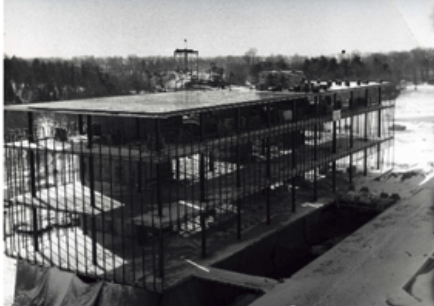PDF
Winning trench warfare: battlefield intelligence in the Canadian Corps, 1914-1918. Item Info
- Title:
- Winning trench warfare: battlefield intelligence in the Canadian Corps, 1914-1918.
- Creator:
- Jenkins, Dan Richard
- Date Created:
- 1999
- Degree Awarded:
- Doctor of Philosophy
- Subjects:
- World War, 1914-1918 Military Intelligence Trench Warfare
- Geographical Focus:
- Canada Europe
- Supporting Materials:
- n/a
- Description:
- This study shows the importance of combat intelligence work to the success of Canadian Corps operations. To do this, the evolution of the intelligence service is described, along with those significant events that shaped and spawned this transition. The intelligence service grew from an understaffed and under appreciated component of staff work into one comprising thousands of members. Almost from the moment the Canadians arrived at the front they began improving their intelligence system. But it was the batties of 1915: Second Ypres, Festubert and Givenchy — that pushed through the first major changes. Command confusion, ignorance, and loss of control marked Second Ypres and Festubert. On these occasions, the under trained Canadians met disciplined Germans, and paid a bloody price. At Givenchy the Canadians fared better thanks to more detailed planning. From these early experiences an enhanced appreciation for intelligence work emerged, along with an entirely new intelligence organization. From 1915, the Canadians became aggressive intelligence gatherers, collecting and analyzing every possible scrap of information before launching assaults. As tactics, technology and fire-power improved, so too did the intelligence organization, expanding to meet the altered circumstances. In doing so it enjoyed great success, compiling a tremendous amount of intelligence for commanders and planners. Operational plans became so detailed and complex that bartlefield confusion, luck, and chance were reduced, as prior calculation and mathematical precision helped commanders regain some control over events. Once operations opened up in 1918, the Canadian Corps adjusted its intelligence system to meet the changing tactical environment, and the need for increased tactical and command flexibility. The intelligence service, however, was able to adapt, and so continued to grease the wheels of command by providing an abundance of information to planners. This helped the corps come to grips with its surroundings, allowing it to maintain pressure on the enemy. While intelligence work was not the only reason for the corps” batllefield success, it was a principal element that cannot be ignored.
Source
- Preferred Citation:
- Jenkins, Dan Richard. Winning trench warfare: battlefield intelligence in the Canadian Corps, 1914-1918.. 1999. Carleton University, Doctor of Philosophy.
- Reference Link:
- https://cuhistory.github.io/grads/items/hist_199.html
Rights
- Rights:
- Copyright the author, all rights reserved, unless otherwise indicated.

